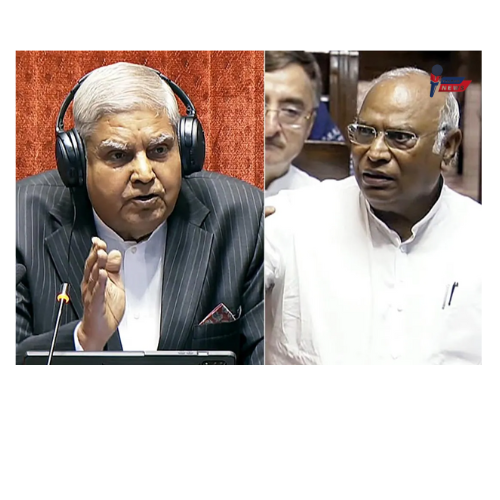The discourse around the National Eligibility cum Entrance Test (NEET) took a heated turn as M. Kharge and Jagdeep Dhankhar clashed over its implications, while Rahul Gandhi weighed in with a scathing critique of the government. This blog delves into the controversies surrounding NEET, highlighting the political, social, and educational dimensions of the debate.

The Political Clash: Kharge vs. Dhankhar
M. Kharge, the Leader of the Opposition in the Rajya Sabha, vociferously criticized the NEET framework, arguing that it disproportionately affects students from marginalized backgrounds. Kharge emphasized that the uniform examination fails to consider the diverse educational landscapes across India’s states. His arguments centered around the need for a more inclusive and equitable examination system that accommodates regional disparities.
On the other hand, Jagdeep Dhankhar, the Vice President of India, defended the NEET, stating that it standardizes the entry criteria for medical education, thus ensuring meritocracy. Dhankhar argued that NEET is crucial for maintaining high educational standards and eliminating discrepancies in the admission processes of various medical institutions.
Rahul Gandhi’s Critique
Adding fuel to the fire, Rahul Gandhi released a video message attacking the government’s handling of NEET. He accused the administration of destroying and ridiculing the dreams and aspirations of millions of students. Gandhi’s poignant message resonated with many, highlighting the emotional and psychological toll that the NEET has on young aspirants.
Gandhi’s critique was not just about the examination itself but also about the larger educational policies and reforms undertaken by the government. He questioned the intent behind these policies, suggesting that they cater more to the privileged sections of society while neglecting the underprivileged.
The Social and Educational Implications
The NEET debate brings to the forefront several critical issues:
- Accessibility and Equity: The examination has been criticized for being biased towards students from urban areas who have access to better educational resources. Rural students, often from disadvantaged backgrounds, find it challenging to compete on an equal footing.
- Mental Health: The immense pressure to perform in a highly competitive exam like NEET has significant implications for the mental health of students. Cases of anxiety, depression, and even suicides have been reported, raising concerns about the examination’s psychological impact.
- Quality of Education: While NEET aims to standardize medical education, it also brings to light the disparities in the quality of education provided by different states. The need for a uniform syllabus and equal access to quality education becomes evident in this context.
Moving Forward: Striking a Balance
The debate over NEET underscores the need for a balanced approach that ensures meritocracy while being inclusive and considerate of the diverse educational backgrounds of students. Policymakers must engage in constructive dialogue with educational experts, sociologists, and student representatives to address the systemic issues highlighted by the NEET controversy.
In conclusion, the clash between M. Kharge and Jagdeep Dhankhar, along with Rahul Gandhi’s sharp critique, has opened up a necessary conversation about the future of medical education in India. It is imperative to create an educational framework that is not only fair and equitable but also supportive of the dreams and aspirations of all students, regardless of their socio-economic background.
Meta Description: The NEET controversy heats up as M. Kharge and Jagdeep Dhankhar clash, with Rahul Gandhi criticizing the government’s policies. Explore the political, social, and educational implications of the debate.
Keywords: NEET controversy, M. Kharge, Jagdeep Dhankhar, Rahul Gandhi, Indian education system, medical entrance exam, educational equity, student mental health, political debate on NEET